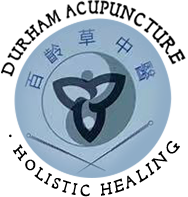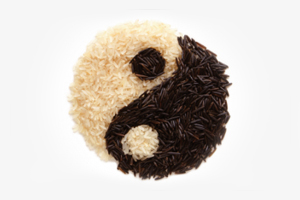Chinese Medicine Nutrition
General Dietary and Nutritional Guidelines
Nutritional therapy is often quite effective at treating common pathologies based on an OM diagnosis like qi deficiency or blood deficiency, but sometimes nutritional therapy may not be enough. This is often seen in diagnoses like qi stagnation or blood stasis. Nutritional therapy can, however, be an excellent supplemental therapy used in conjunction with other OM modalities like acupuncture or herbs. The nutritional principles discussed in this pamphlet can be applied to any type of cuisine or style of cooking.
It is best to work with your practitioner, who is able to accurately diagnose and suggest dietary advice based on the presenting OM pattern or diagnosis.
General Eating Habits
- Eat in a calm and relaxed atmosphere and do not rush your meal
- Avoid intense interactions at meal time, including television and reading
- Chewing food thoroughly supports spleen qi
- Don’t eat meals late at night
- Avoid overconsumption and excessive fasting
Foods the Should be Avoided
- Raw, cold food, and iced beverages
- Excessive dairy
- Oily, greasy, and fried foods
- Refined sugar and limit overly sweet foods
- like fruit
- Refined carbohydrates
- Excessive alcohol intake
- Excessive meat consumption

Nutrition for the Kidney
Nutrition for the Liver
Nutritionally it is important to find a balance between getting enough energy and not taking in anything that will over excite, as this will exhaust the liver energy as well as the energy of the spleen and stomach. It is important to avoid stimulants including nicotine and caffeine. The emotion of anger is closely related to the liver, so alcohol is best in moderation or, for some, should be avoided completely. Some spicy and pungent food can be helpful in moderation as it can help to facilitate qi movement, as stagnation of qi is quite common with liver imbalances. However, too much of this can just as easily be a hindrance. It is also important to eliminate foods that congest the liver like saturated fats, hydrogenated fats, excess amounts of nuts, and highly processed foods. Eating habits can stagnate and congest the liver as well, so don’t skip meals, eat quickly, overeat, eat late, or eat when emotionally upset. Relax and enjoy the meal you prepared.
Nutrition for the Heart
The heart rules the blood and blood vessels, and stores the shen (spirit). Nourishment of the heart brings a long healthy life. The heart governs blood and circulation. For a normal heartbeat, with a smooth and even rate and rhythm, regulating circulation, heart qi and blood must be abundant.
The heart houses the shen. When the shen is harmonious, the mind is acute and clear, the physical body is exuberant, and the spirit is calm and peaceful. When the shen is disturbed, restlessness, insomnia, poor memory, anxiety, and panic will be present. When the shen is deficient, joylessness and lusterlessness will prevail. The heart requires qi and yin to properly house and anchor the shen. Proper nutrition can support the blood and yin of the heart and support the shen. Calm the shen by avoiding energetically hot foods, like ginger, garlic, alcohol, and coffee. This heat can easily be aggravated by stress and anger. Damp and phlegm can also adversely impact the heart and shen. By removing damp forming foods, like dairy and sugar, from the diet it can help aid in proper heart function and a healthy shen. It is best to cook foods with high heat and a short cook time, and with light salt and spice.
Nutrition for the Spleen & Stomach
Spleen
Stomach
Dryness and heat can damage the stomach. Hot acrid foods like coffee and alcohol, and spices like curry, garlic, pepper, should be avoided with stomach pathologies. Take time while eating, eat regularly, eat warm meals, and don’t eat late at night.
Nutrition for the Lung
Nutrition therapy can be used to prevent lung disharmonies as well as help treat existing conditions. The lungs are susceptible to deficiencies of qi and yin, and excess conditions of phlegm, dryness, wind-heat, wind-cold, and toxic-heat.
One of the most important functions of the lung is to govern qi and breathing. Supporting and strengthening the lung qi and yin through nutrition can be used to help with multiple aspects of the lung pathology.
1) Treating such symptoms as shortness of breath, dyspnea, weak voice, and weak breath.
2) Strengthening the exterior can help prevent external pathogenic invasions, like the common cold or allergies, or help resolve existing wind invasions.
3) Supporting proper lung function can help diffuse qi, moistening the body and preventing dryness. If the spleen is weak or over-taxed it can be the source of phlegm production. Instead of a fine mist, phlegm is sent to the lungs. If the lungs are unable to disseminate it throughout the body it ends up storing in the lung resulting in wheezing, dyspnea, shortness of breath, etc. Proper diet can help resolve chronic phlegm and prevent further accumulation.
To aid the lungs it is best to consume easy-to-digest foods that are fresh and lightly cooked, usually with less water and at lower temperatures. This helps increase the nutritional value and assimilation of food.




